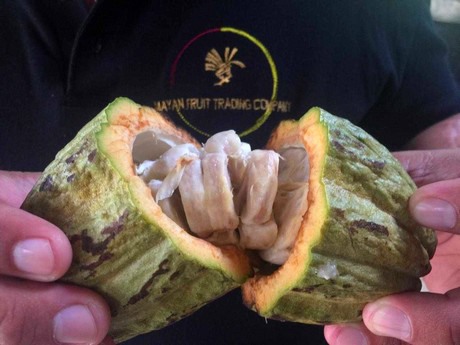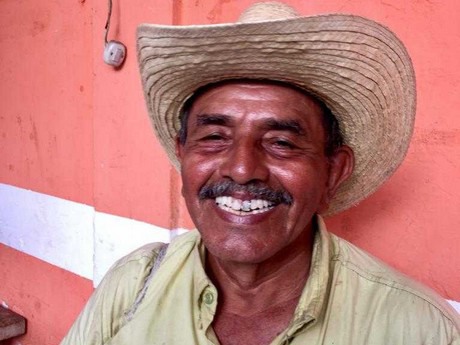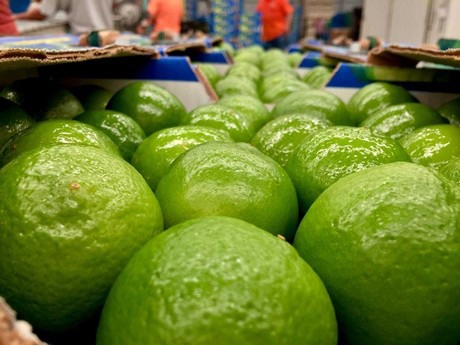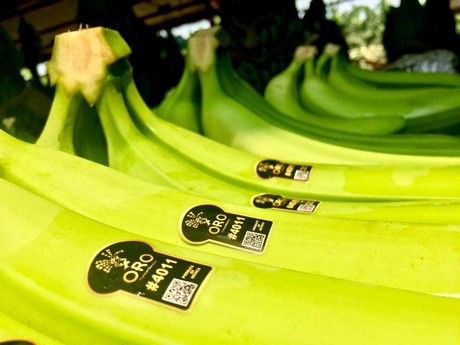A relatively new company based in Mexico is aiming to bring fruit out of the primarily indigenous regions of Mexico to the world market. After several years in planning, Mayan Fruit Trading Company officially began trading in May 2019, and the company's initial line of fruits includes some of the more common as well as less common tropical fruits.
"Our first steps on the market were made back in 2015," shared Jakub Kostka, CEO of Mayan Fruit Trading Company. "It wasn’t until the back end of last year when we decided to consolidate all the talent and experience we had available into what is now Mayan Fruit Trading Company."

"Our key products - both conventional and organic - are bananas, limes and other citrus, pineapples and avocados," he added. "However we do specialize in various other products such as plantains, dragon fruit, cocoa, coffee and other niche products cultivated for generations in the Yucatan Peninsula, Campeche and Chiapas a well as other particular regions of the country. Amongst our main product range we also manage small volumes of product which are very specific to the region like Chili Habanero which is one of the spiciest peppers on the planet as well as dragonfruit which not everyone knows is native to southern Mexico and Central America."
Linking Mayan growers to the world
Koskta pointed out that there are in fact more than 7,000,000 people of Mayan descent living in Mexico. Many of them are concentrated in the Yucatan region which is where the company sources most of its fruit. The Mayans have been growing fruit for centuries, but have largely concentrated on the local market because many growers are small in scale and lack the necessary certifications to make exports a reality. This is where Mayan Fruit Trading Company has stepped in.

"Some of the Mayan descendants have caught up with the modern day export requirements and are fully certified with Global Gap or for example USDA, however there are still numerous small growers which are far from being able to supply in the same manner," Kostka explained. "Today's world demands certifications and regulations which for the small growers is impossible to get from a financial point of view, but also due to a lack of knowledge and understanding of export rules."
According to Kostka, one of the missions of the company is to empower small growers to eventually join the global supply chain by providing resources like technical advisory and guidance as well as investing in projects which would allow those growers to produce fruit for export. But it goes further than that. "Thanks to my visionary business partner, we are planning to engage in supporting some of the local schools as well as supporting isolated people," he said. "You would be surprised how little effort and resources is needed to help these who need it the most."
Sustainable growing practices
Part of working with the local people is also making sure to protect their land, Kostka said. The company aims to make sure the products are grown in a sustainable manner to help protect the environment and minimize the use of pesticides. As a demonstration of this, Kostka explained how this is done with Persian limes.

"All the water supply in the lime growing region is subterranean, hence the growers, together with the local government decided to reduce the pesticide usage to a bare minimum in order to protect the environment. They even subsidize purchasing of organic pesticides. The result – an unaffected water supply and conventional citrus with MRL levels almost the same as our organic ones."
He continued by saying the approach extends to the packaging they use. Aside from the standard options like an 18kg banana box and multiple other pack types, the company aims to use sustainable materials. "As we are very environmentally oriented we always ensure that our boxes, bands and other materials are made from fully recyclable materials. It's not an easy task as these are not always easy to find, however one of our objectives is to increase awareness regarding sustainable cultivation and exporting hence why we go the extra mile even if it's not the cheapest solution. All of our premium brands are sold under the ORO brand, which provides a guarantee of quality and sustainability to all of our clients."
First to Europe
The company's main client base is in Europe and the Mediterranean, but Kostka said they have expansion plans to reach the US as well as Asia. Many of their partners are already prepared. "The majority of our producers are certified for all three markets which allows us to work with confidence and deliver the best and sustainable products and service."

In conclusion, Kostka shared the reason he believes why Mayan Fruit Trading Company's program is a success. "People making the business have the experience in working with some of the world's biggest retailers, ripeners and importers so not only are we an experienced exporter but we also have a complete cold chain expertise that many other companies lack as result of their natural origin," he said. "Our technical team is led by a qualified and experienced Agronomist and every single person employed in the office has had years of previous experience in exporting FMCG either from the clients or producers end. We are a small but very focused and professional business delivering quality products and complete transparency at every step of the way."
For more information:
Jakub Kostka
Mayan Fruit Trading Company
Ph: +52 (1) 932-1111-463
[email protected]
www.mayanfruit.com










